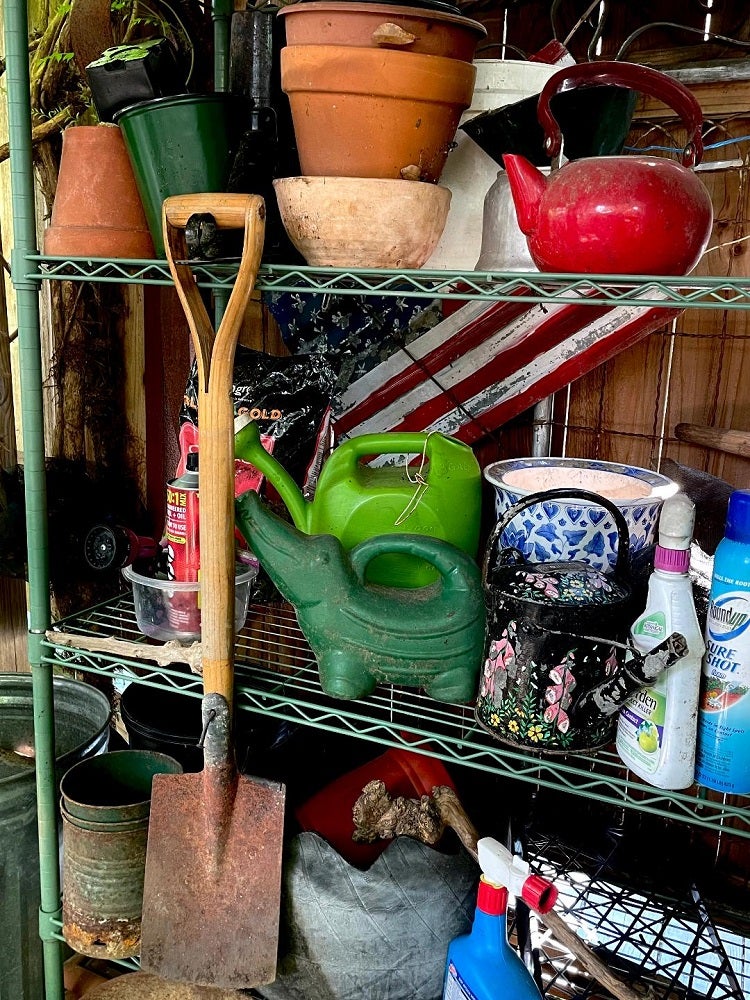Arboretum Paths: From wild hogs to fairy houses
Published 7:00 am Wednesday, March 9, 2016

: An Arboretum program will be held this Saturday on controlling feral pigs, a nuisance wildlife species that can carry diseases affecting humans, pets, and livestock.
Photo submitted
Our spring program calendar has been completed, and two flyers now sit side-by-side in the Arboretum Visitor Center: a program on Controlling Wild Hogs and a Fairy House Workshop. These are perfect examples of the diverse programs we offer at our public garden designed to attract you – the public – to explore the Arboretum.
Perhaps you have found signs on your property that appear to be a bit more severe than armadillo damage. This could be wild hogs rooting for food. Feral pigs will leave ruts in the ground and also wallow in wet soil to cool off. They are not picky, eating just about anything, including plant material such as roots and bulbs, insect larvae, worms, and eggs of ground nesting birds.
Wild hogs were brought to the Americas in the 1500s by Spanish explorers to be used as livestock, and also by hunting enthusiasts. Unfortunately, they spread throughout the southeast and are a growing nuisance, reproducing rapidly and having few predators.
Growing up in East Tennessee, I was aware that wild hogs were a problem in the Great Smoky Mountains National Park. The legend was that a shipment of wild boar were imported in the 1940s from Germany to North Carolina and had escaped from a private hunting reserve. The wild boar bred with domesticated pigs and had developed into a serious threat in the national park. They not only threatened the habitat of the American black bear, but consumed animal and plant life throughout the park.
As hikers we were concerned that an encounter with a wild boar would mean a fast lesson in scaling a tree, since they were reputedly extremely ill-tempered. What was doubly horrifying to me was that they ate roots and tubers. It was sad to come across evidence of their rooting in patches of wild orchids.
Over the past decade, wild hogs are more frequently found in urban areas. They can carry diseases transmittable to humans, pets and livestock. For more information, search this topic on the Mississippi State University Extension Service website at www.msucares.com or at http://wildpiginfo.com. Learn about controlling wild hogs in a program to be held at the Arboretum on Saturday, March 19 at 1 o’clock, with Pearl River County Extension Agent Dr. Eddie Smith. The cost is $5 for nonmembers.
On the same Saturday, a fairy house workshop will be held, led by MSU Extension Professor Dr. James DelPrince. Originally intended to be a children’s workshop, so many grown-ups were captivated by the topic that we quickly opened it to all ages. Although the program has now filled and has a waiting list, future workshops are planned.
The idea for the fairy house workshop was sparked during a trip last year to visit my sister in Nashville. We stopped in at a florist shop, and in the workroom we passed a fairy house structure that had just returned from a floral competition. The intricacy of the construction was mesmerizing – lush with moss and lichens, windows and turrets, and long twine and twig ladders leading up to them.
A search on the Internet revealed that fairy houses are a very popular subject. Many books are available on how to construct them, as well as on crafting fairy furniture. Doors are constructed at the bases of trees, or dwellings left in the forest for fairies to discover. As they say, you are only limited by your imagination.
Teachers and homeschool groups, consider attending our Wildlife Day on Thursday, March 31 from 9:00 a.m. to noon. This year, exhibitors will include the New Orleans Audubon Nature Institute Wetlands Express, Hattiesburg Zoo, the Mississippi Museum of Natural Science, the Audubon Society, a monarch butterfly exhibit, and much more! Admission $2 per child, free to teachers and chaperones. Groups of 10 or more, please call 601-799-2311 to schedule your arrival time.
The Crosby Arboretum Foundation Art Show will take place on April 2 and 3. Prizes will be given in four categories, including painting and photography; three-dimensional art, and heritage crafts. Grades 7 -12 are encouraged to participate in the youth division. For more information, see the entry form atwww.crosbyarboretum.msstate.edu.
The Arboretum is open Wednesday through Sunday from 9 a.m. to 5 p.m. and located in Picayune, off I-59 Exit 4, at 370 Ridge Road (south of Walmart and adjacent to I-59).
By Patricia R. Drackett, Director, and Assistant Extension Professor of Landscape Architecture
The Crosby Arboretum, Mississippi State University Extension Service



